On Sunday, October 11, 2009 (aka “National Coming-Out Day”), thousands of Americans, including GO staffers, trekked to Washington, D.C. for the National Equality March (NEM). The first national LGBT mobilization on Washington occurred in 1979 and drew approximately 100,000 people; other national gay marches on Washington followed in 1987, 1993, and 2000 (the relatively underattended 2000 “Millennium March” organized by the Human Rights Campaign (HRC) and the Metropolitan Community Church). Additionally there have been several other historically significant LGBT actions in Washington D.C., such as the first ever picket of the White House by lesbian and gay Americans carried out by Barbara Gittings, Frank Kameny and other brave gay activists in 1965, as well as the various National Black LGBT Coalition gatherings in D.C.; nor does it count issue-specific protests such as those against Proposition 8’s passage.
The NEM was unlike its predecessors in one striking respect: never before had gay people assembled in front of a White House inhabited by a President largely considered to be “our” candidate—the first ever president of African-American descent, elected on a populist Democratic ticket, and a self- described “fierce advocate” of LGBT rights. The NEM was also unlike prior gay marches in other respects: this action was not blessed by an overwhelming majority of the LGBT official political/organizational landscape. Some thought it too hastily organized; some questioned why we should march now, with an ally in the White House. HRC’s Joe Solmonese urged community members to wait “until 2017”—that is, until after Obama’s presumed second term—to assess Obama’s contributions, or lack thereof, to the fight for LGBT rights; others questioned the efficacy of marching at all, wondering aloud what it would accomplish. Most notable among these was out gay Congressman Barney Frank, who urged all concerned to write to their legislators about LGBT issues instead of converging on D.C. and whose comment that “the only thing they’re [demonstrators] going to put pressure on is the grass” was widely debated on scores of gay blogs. Thenarrative that developed around the NEM was that it was an “activist” march sprung from grassroots settings, not one originating from the staid offices of the more “establish- ment” LGBT official organizations.
In keeping with its activist origins, the NEM championed many causes: signs advocated for gay marriage, immigration protections, AIDS funding, hate crimes legislation, employment discrimination protection, repeal of DOMA and U.S. military anti-gay policies, transgender rights, etc. It also had some big ticket celebrity speakers and attendees, including Lady Gaga, out Sex & the City actress Cynthia Nixon, Judy (mother of Matthew) Shepard, famed civil rights leader and NAACP Chairman Julian Bond, Martina Navratilova, Kate Clinton, Urvashi Vaid and Cleve Jones (the lifelong gay activist and colleague of Harvey Milk who attained international fame as a character in the 2008 Milk biopic.) As stellar a lineup as this was, none of the celebrities could match Lt. Dan Choi’s performance at the march: the out commander who is facing discharge as a result of the army’s heinous anti-gay policies walked with a calm, measured stride onto the NEM podium, where he stood in what seemed like suspended animation for several seconds in a tight military salute, his mouth covered by a thick piece of black tape which he triumphantly tore off in an elegant wordless Don’t Ask-Don’t Tell protest that brought the crowd to its feet. It was the march’s dramatic highlight.
Given the diversity of opinion about the wisdom of the march itself, what was also striking and uniting was the feeling of urgency in marcher’s faces, words and signs, urgency shared by their LGBT sisters and brethren who were unable to make the journey. As we go to press a month after the march and one week after local and national midterm elections which saw Democrats lose two choice governorships and yet another state-specific defeat of gay marriage in Maine. With not a peep uttered by our “fierce advocate” president or by any other major Democratic Party figure for that matter, the sense of optimism evidenced by many at the NEM march already seems quaint. But tomorrow, as they say, is another day.



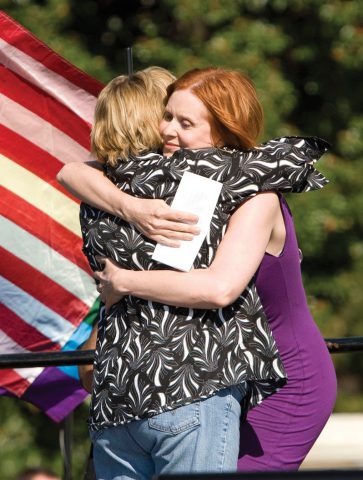

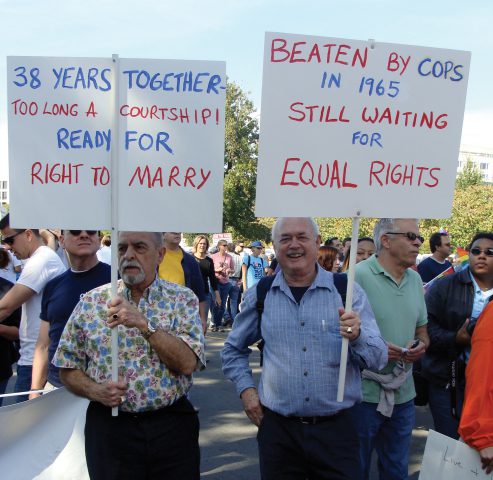
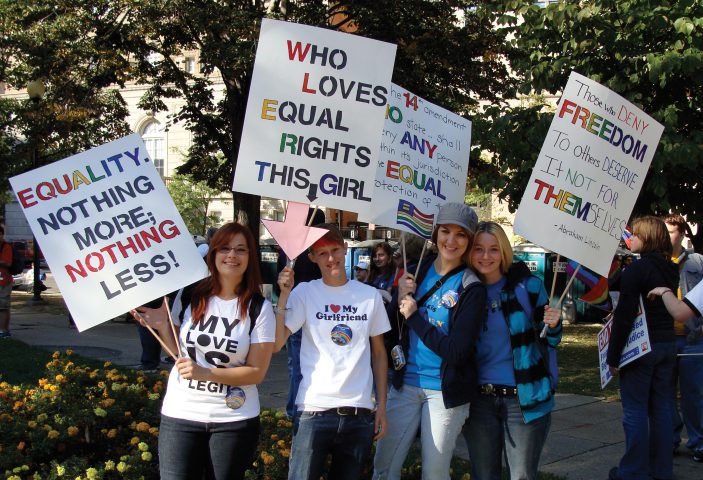


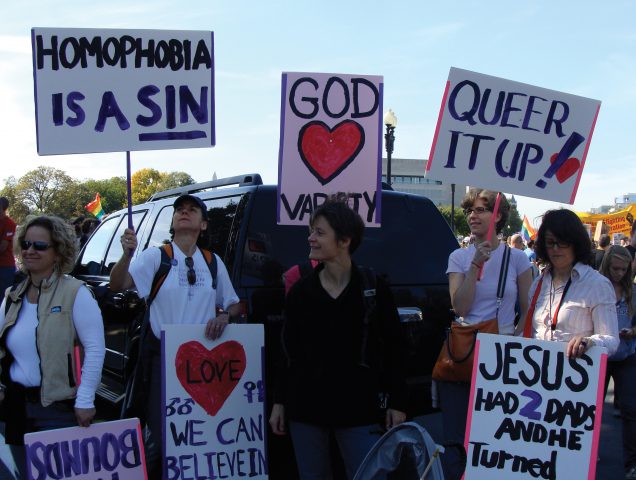




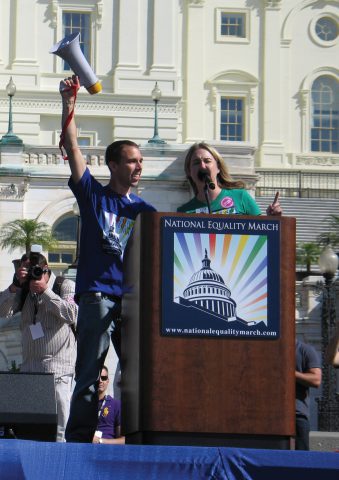
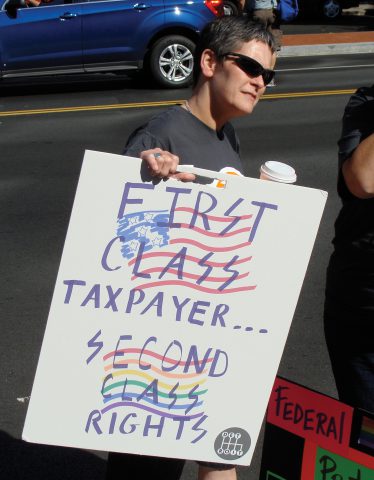
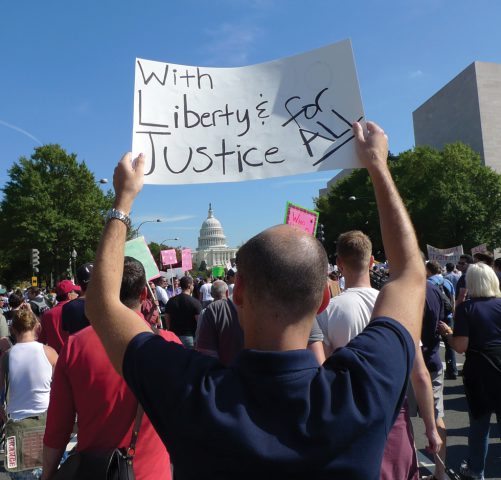
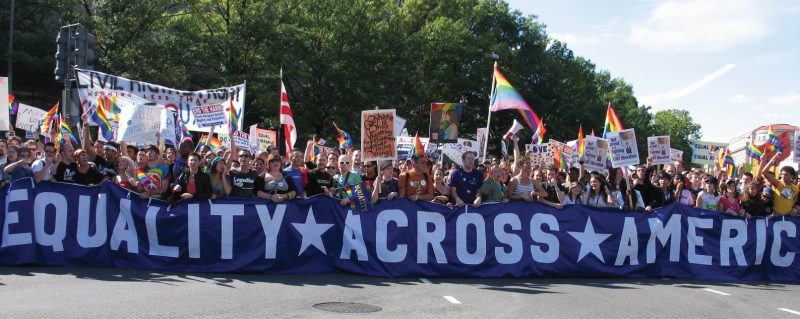


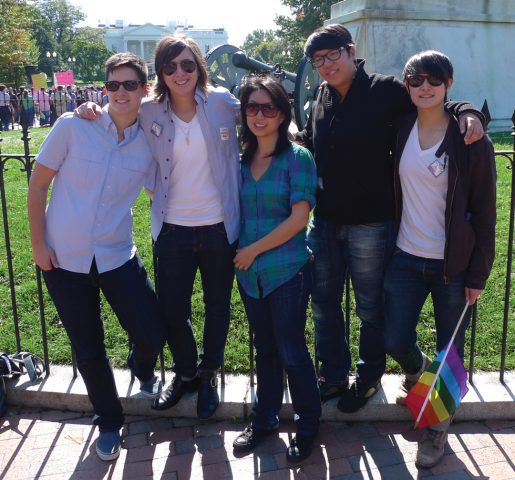
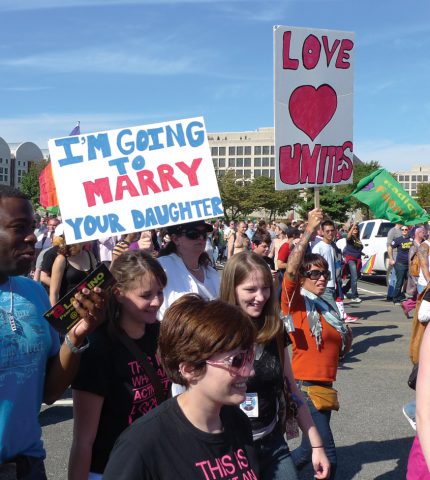


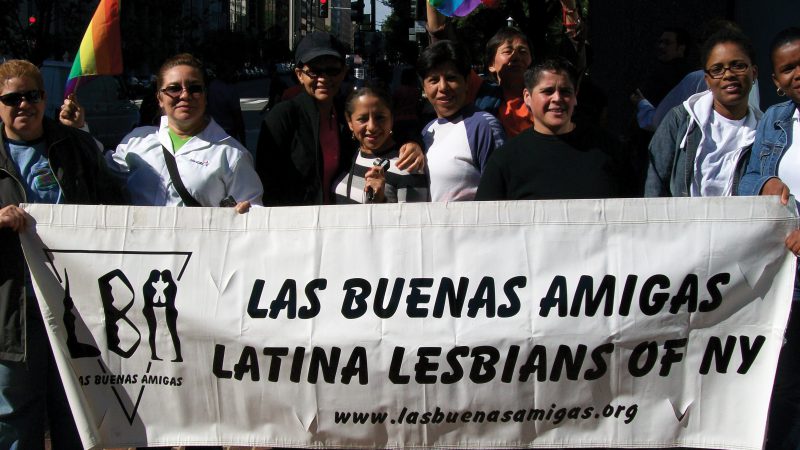

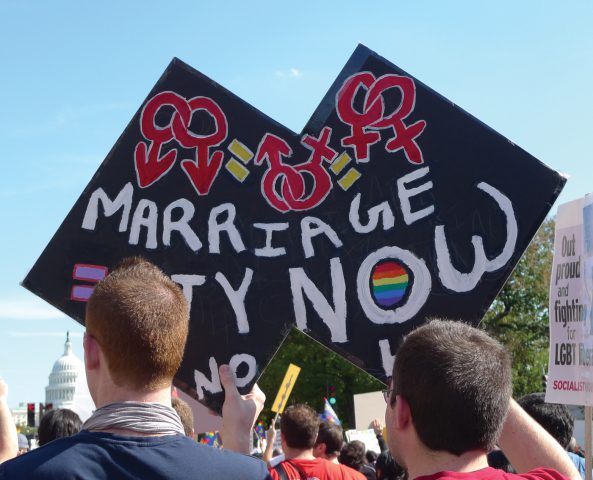


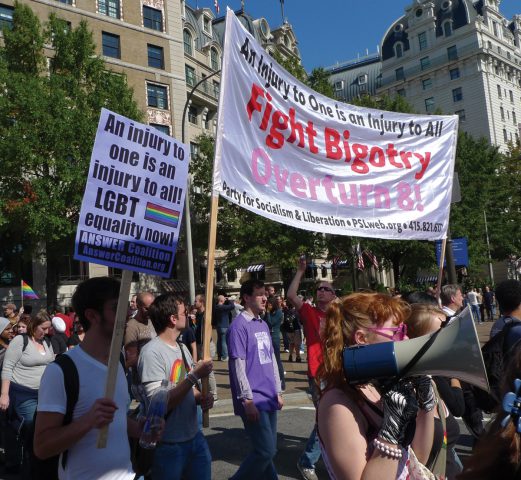
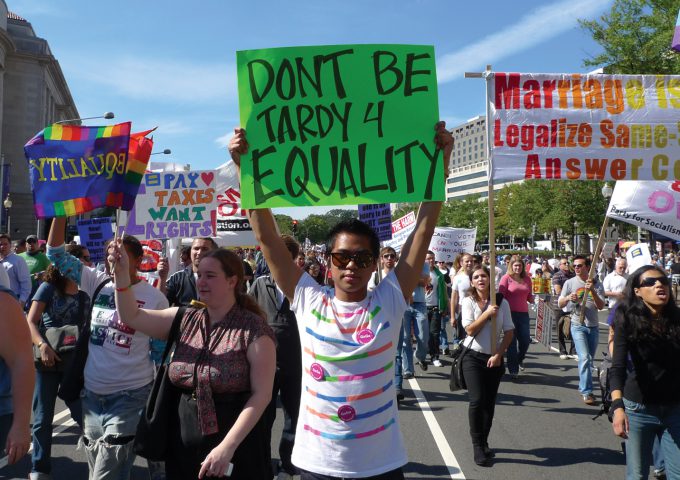
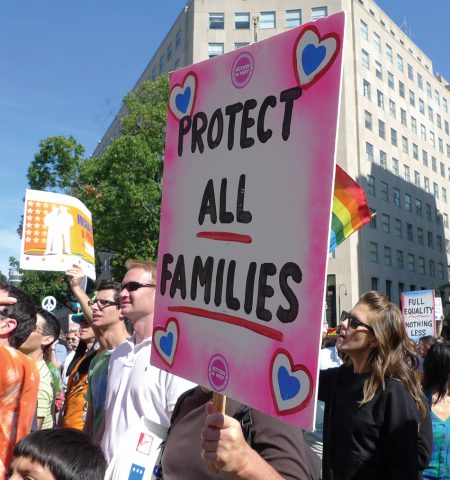
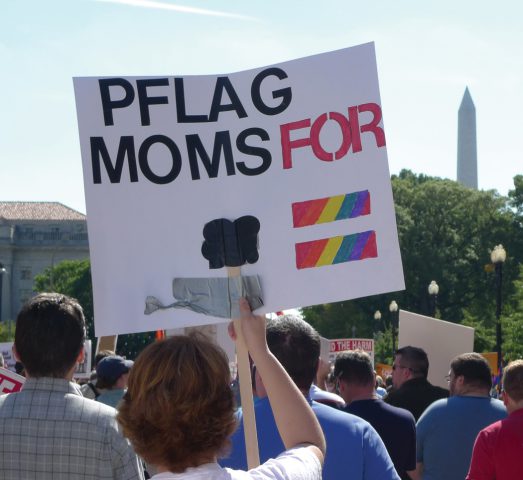
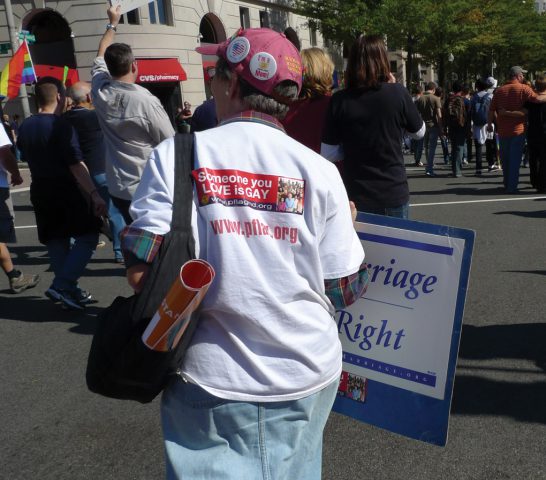
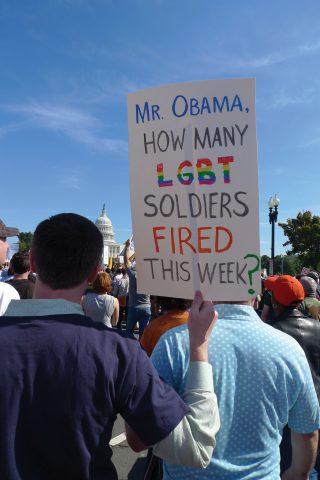

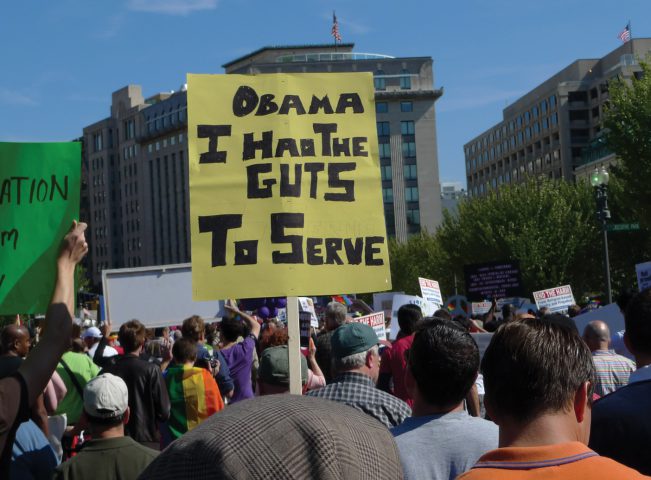
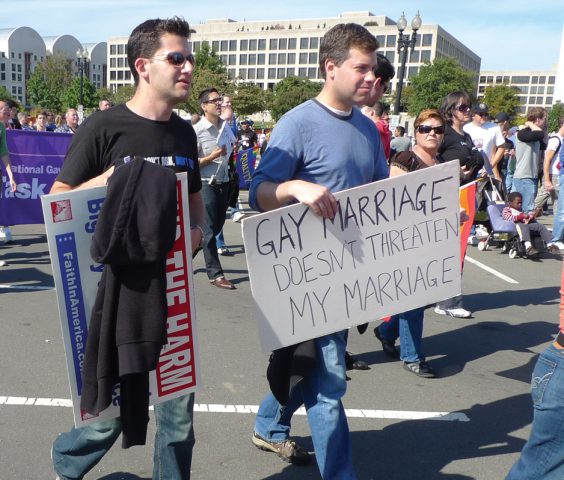

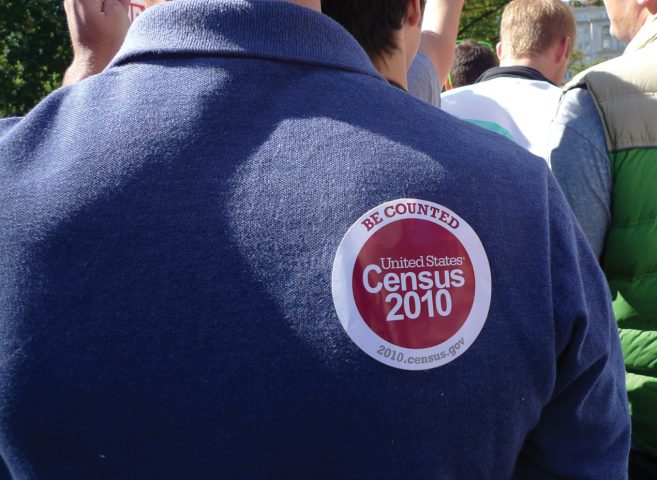
What Do You Think?